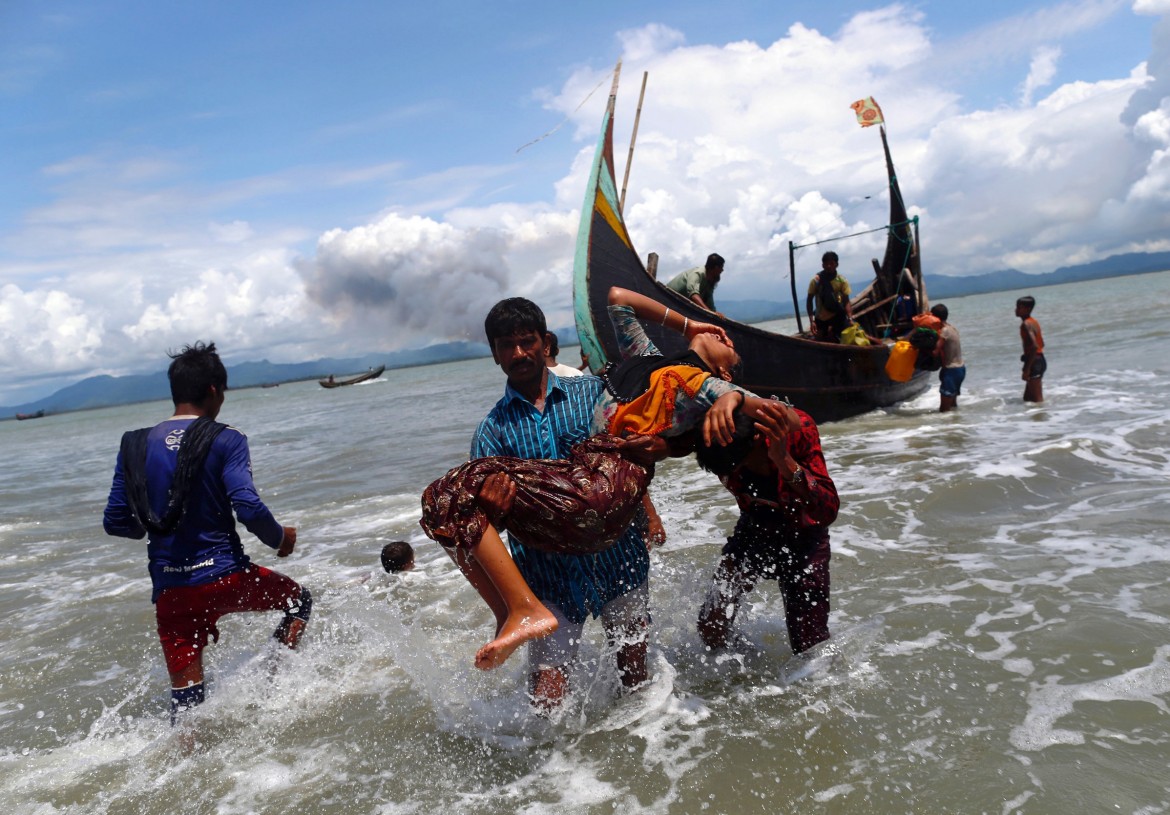Analysis
Suu Kyi backs out of U.N. meeting amid rising international pressure
The Nobel Prize laureate Aung San Suu Kyi has been largely silent on what a U.N. commissioner called "textbook ethnic cleansing."

Aung San Suu Kyi’s decision not to attend the next U.N. General Assembly in New York was perhaps intended to shake the Glass Palace again on the Rohingya issue. Secretary General Antonio Guterres has made statements regarding this decision in the past few days, but the language used Wednesday was the strongest it has yet been: The situation of this minority is becoming “catastrophic” and the actions of the Burmese military are “completely unacceptable.”
Guterres’ words — and in diplomatic language sometimes a single term can make an incredible difference — mark an ever higher level in the bar that registers the humor of the international community and the sensibility of humanitarian agencies (both U.N. and others) that cannot provide relief to the 380,000 Rohingya displaced persons who escaped Myanmar in the last two weeks. They fled for the “disproportionate reaction” (again the words of the U.N.) of Burmese law enforcement agencies after the attack by a Rohingya armed group on Aug. 25 at several police stations.
The crescendo started with the statements by the Special Envoy to Myanmar, Korean teacher Yanghee Lee, who in fact was unable to carry out her inquiry. Then, Zeid Ra’ad Al Hussein, High Commissioner for Human Rights, used the term “ethnic cleansing” without many circumvents. In fact, he said it is “textbook” ethnic cleansing.
The U.N.’s critical position has continued to gain momentum, reflecting the government’s attitude and, above all, the attitude of its de facto leader, Nobel Prize Aung San Suu Kyi. She first broke her embarrassing silence to denounce an “iceberg of misinformation” as what she called “propaganda.” Then, she decided not to attend the next U.N. General Assembly, a stage where just last year, after the violence of October 2016, she had already defended her government’s positions. But this year, she would have received heavy accusations on that stage, especially from the Muslim countries and many civil society organizations—from Human Rights Watch to Amnesty, MSF to the various Rohingya organizations. Essentially any organizations which are currently active in the defense of rights.
However, Guterres, in addressing the Burmese government and its military, was actually sending a signal to the U.N. Security Council that for the second time is debating on the Rohingya issue, on which China and Russia are holding back too much. The reason is clear: The situation in Myanmar is dramatic for the Rohingya, but it is also extremely dangerous for the Suu Kyi government—a weak government, despite its numbers, and hostage of the old military power.
Mostly Beijing does not want instability in the countries where it invests. And in these days, it’s easy to see how complicated the situation is. While the debate abroad is becoming more heated (Sweden and the U.K. have asked for the meeting of the U.N. Security Council), the waters at home remain agitated. A coalition of 29 parties headed by the Union Solidarity and Development Party (heir of the old military government) condemned the government for listening to the Rakhine Advisory Commission. This group, appointed by Suu Kyi under orders from former U.N. Secretary Kofi Annan, accused the Burmese Army chief, General Min Aung Hlaing, of “partiality.”
The committee wants the revision of the 1982 Law on Nationality, a law that excludes the Rohingya. The parties not only used threatening terms, but they labeled Annan’s report as a work of “traitors and foreign groups that want to destroy the nation.”
Meanwhile, al Qaeda is giving a hand to those who shake the specter of radical Islam on the issue. In a statement made known by the intelligence website SITE, al Qaeda accused the Myanmar government of “inhumane treatment” against their Muslim brothers that must be “punished.” The threats continue to fuel the military propaganda, stating there is a plan using jihadist “terrorists” to destroy the country. However, the group under accusation, ARSA, has no known connections with al Qaeda or the Islamic State.
Originally published at https://ilmanifesto.it/san-suu-kyi-diserta-il-palazzo-di-vetro-e-lonu-attacca-sui-rohingya/ on 2017-09-14
